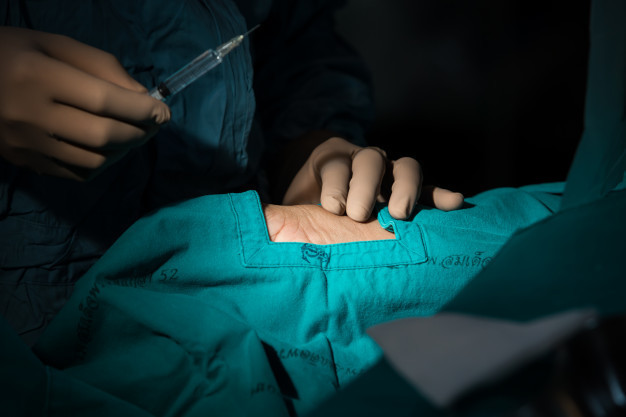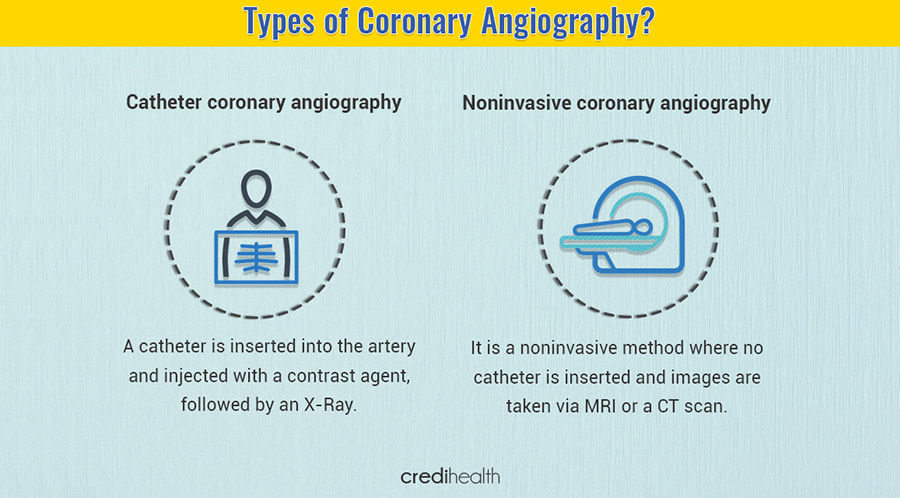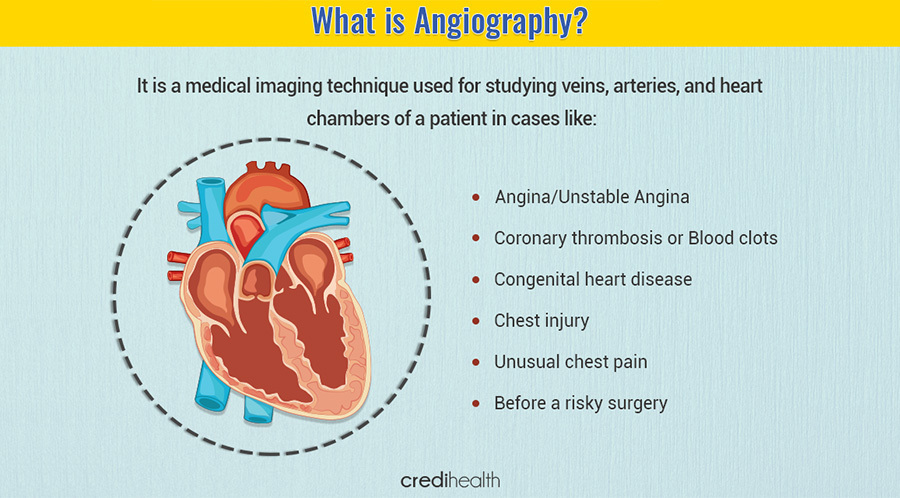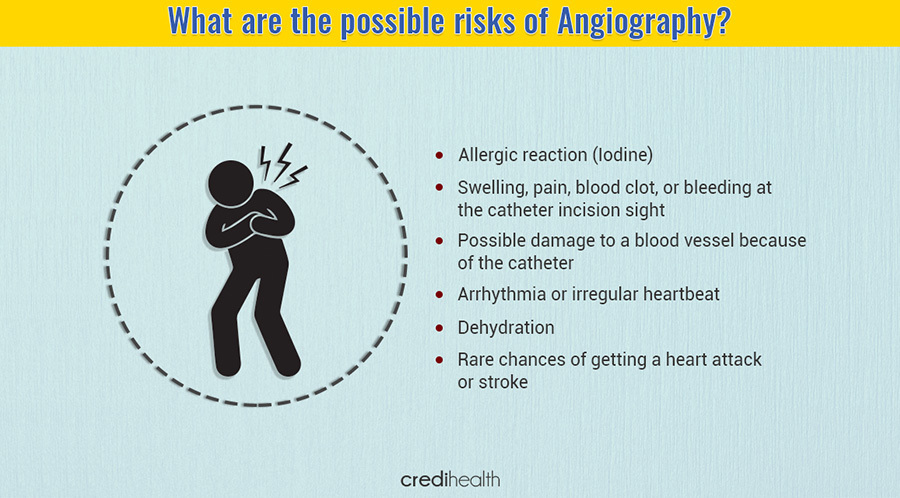Coronary Angiography Cost in Mumbai
Coronary angiography is a medical procedure. It uses imaging techniques (X-rays) to look inside the arteries of the heart. This test lets the doctor see if there is a blockage in the coronary arteries. It is a part of cardiac catheterization; the procedure to diagnose and treat heart diseases.
Get Cost of Coronary Angiography in Mumbai
Top Doctors for Coronary Angiography in Mumbai
MBBS, MS, MCh - Cardiovascular and Thoracic Surgery
Consultant - Cardiac Surgery
27 Years Of Experience,
Cardiac Surgery
MBBS, MD - General Medicine, DM - Cardiology
Consultant - Cardiology
31 Years Of Experience,
Cardiology
MBBS, MD - Medicine, DNB - Cardiology
Honorary Consultant - Interventional Cardiology
39 Years Of Experience,
Cardiology
MBBS, MD, DM - Cardiology
Consultant - Cardiology
43 Years Of Experience, 5 Awards
Cardiology
MBBS, MD, Fellowship - Cardiology
Director - Cardiology
53 Years Of Experience, 8 Awards
Cardiology
Coronary Angiography Cost from trusted Hospitals in Mumbai

SV Road, Vile Parle West, Mumbai, Maharashtra, 400056
Super Speciality Hospital

15 - Deshmukh Marg, Pedder Road, Mumbai, Maharashtra, 400026, India
Multi Speciality Hospital

Rao Saheb Achutrao Patwardhan Marg, Four Bunglows, Mumbai, Maharashtra, 400053
Multi Speciality Hospital

Mulund Goregaon Link Road, Mulund (West), Mumbai, Maharashtra, 400078
Multi Speciality Hospital

The Umrao IMSR, Near Railway Station, Mira Road East, North Mumbai, Mumbai, Maharashtra, 401107, India
Multi Speciality Hospital
What is the average cost of Coronary Angiography in Mumbai?
The cost of Coronary Angiography in starts from Rs. 12,000 which depends on multiple factors. The average cost of Coronary Angiography in Mumbai may range from Rs. 12,000 to Rs. 24,000.
Indications
Coronary Angiography is indicated by doctors to determine the treatment options for a patient. This procedure helps doctors diagnose the following conditions:
- Coronary Heart Disease
- Heart Attacks
- Angina
- Congenital Heart Disease
- Blood vessel problems
- Issues with Heart Valves
- Cardiac amyloidosis (a disorder in the heart tissue)
- Cardiomyopathy or reasons for the congestive heart failure
- Pulmonary hypertension or high blood pressure in the lung arteries
Coronary angiography may also be performed as a part of the following procedures:
- Angioplasty
- Heart Valve Repair or Replacement
- Balloon Valvuloplasty
- Cardiac Ablation
Pre-procedure Guidelines
If you have been recommended by your doctor to undergo Coronary angiography, you must practice the following steps before the procedure:
Fasting: 6-8 hours of fasting before the procedure. This is done as coronary angiography uses anesthesia. If you consume any food item before the test, you may suffer from some complications.
Medical Information: You must inform your doctor about the medications you take, particularly if you take viagra.
Allergies: If you are allergic to any specific medicine (or contrast material), you should inform the medical specialists at the cath lab.
Previous experience: If you have faced some difficulties regarding coronary angiography in the past, you should mention it to your doctor. This is essential to avoid further complications.
Pregnancy: If you are pregnant or planning to get pregnant, notify your healthcare provider.
Diabetes: If you are diabetic, ask your doctor if you should take your medications before the test.
What happens during procedure
In the course of this procedure, you will be awake. Anesthesia will be given to relax you.
Firstly, an intravenous (IV) line will be inserted into the vein of your arm. A thin flexible tube (catheter) will then be inserted from your groin or arm.
The doctor will make a small cut for the entry of a plastic tube called a sheath. The sheath will be placed in your artery.
The catheter will then be directed to the respective coronary artery. At this point, a dye will be flushed through the catheter. This dye allows the X-ray machine to capture images for the doctor's reference.
Post-procedure guidelines
After the procedure is completed, the following steps will be performed by the medical expert or nursing staff:
- The catheter will be removed and the incision will be closed by manual pressure or a clamp.
- You will be put under observation by the medical staff. You may have to stay at the hospital overnight for monitoring purposes, if reqired.
- Your doctor will ask you to lie down for the first few hours.
- You will be advised to drink plenty of water. This will help you flush the dye from your body.
- You should ask your queries with the doctor, before performing routine activities like taking medicines, or bathing.
- You should avoid doing any activity that may exhaust you.
Risks and Complications
Angiography is a safe and sound procedure if performed by qualified experts. However, certain risks are associated with this procedure. The following is a set of such complications that may be generated from this test:
- Irregular heartbeats
- Injury to arteries
- Low Blood Pressure
- Allergy due to the dye used in the procedure
- Swelling or pain in the area where the catheter is inserted
- Blood clots
- Damage to blood vessels
- Dehydration
- Heart attack or stroke (Rare chances)
- Kidney damage
For more information on angiography cost in Delhi, contact Credihealth Medical Experts at 8010-994-994
Frequently Asked Questions
Q: Where is Coronary Angiography procedure performed? 
A: Coronary Angiography is performed in the cath lab of a hospital.
Q: How long does it take to recover from an angiography? 
A: Most of the patients feel fine a day or so after having the procedure. But in a few cases, a patient may feel tired, and the wound site is likely to be tender for up to a week. Usually, it takes 2-3 week to recover fully.
Q: What Activities can I not do just after the angiogram? 
A: Do not do any strenuous workout, and do not lift, pull, or push anything heavy until your doctor says to do so.
Q: What is the success rate of the Angiography Procedure? 
A: Generally, the success rate of Angiography depends on multiple factors such as patient’s age, medical condition, Treatment quality, etc. However, success for the procedure is approximately 97%.
Q: Whom to consult for Coronary Angiography? 
A: A qualified and skilled cardiologist or a vascular surgeon with vast experience in Coronary Angiography can execute or provide consultation for the surgery.





.svg)

.svg)
